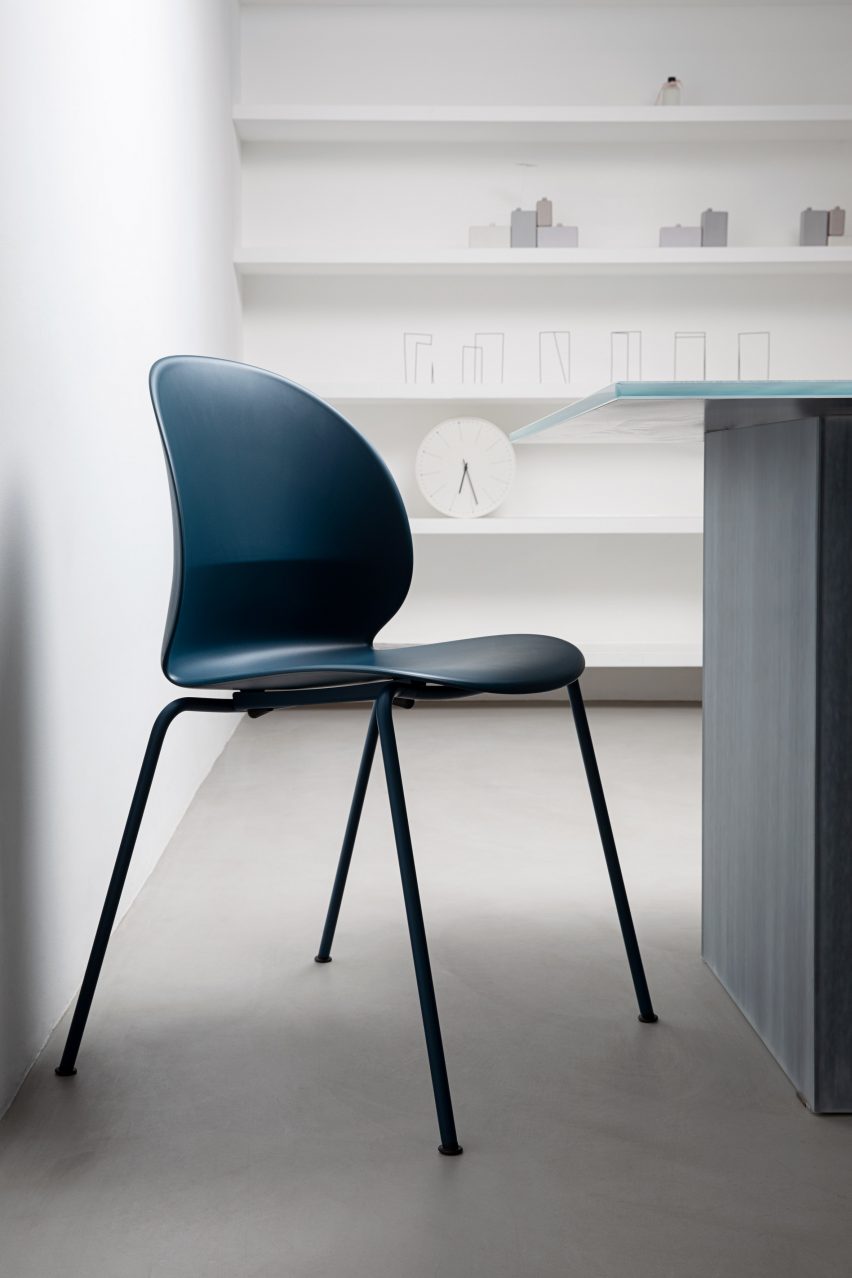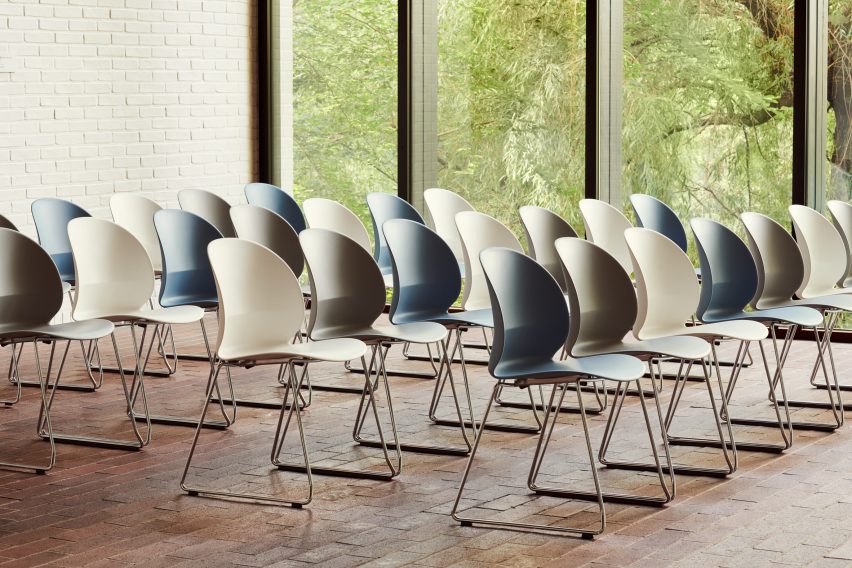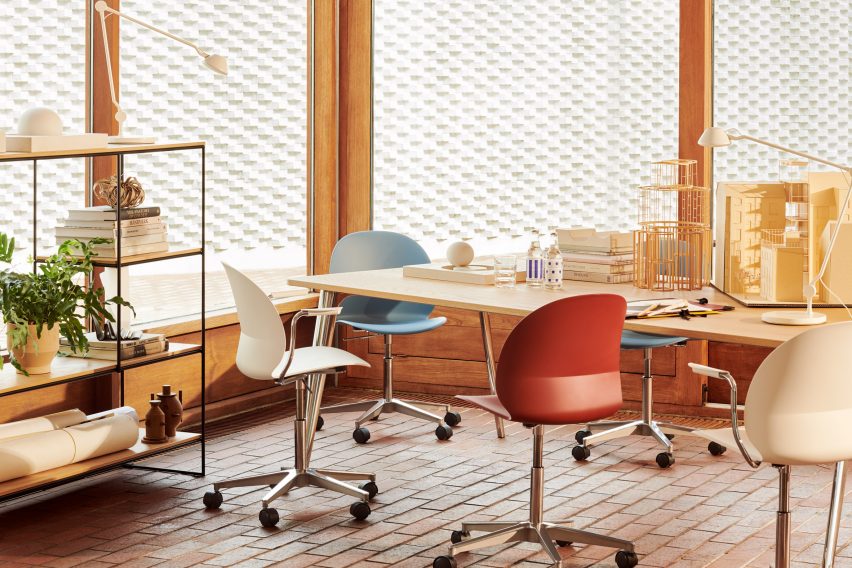Designers need to focus on the afterlife of their products says Oki Sato
Oki Sato explains how Nendo's chair for Fritz Hansen follows circular design principles, in this exclusive video filmed by Dezeen at the Japanese design studio's office in Milan.
Called the N02 Recycle, the stackable chair is made from recycled household plastics and is designed to be recycled into a new chair at the end of its life.
The release of the chair is the first move by Fritz Hansen towards creating products for the circular economy.

"It's really important for us to try to connect the tail of the project with the head of the project and try to create a complete loop," Sato told Dezeen.
The household plastics used to make the seat are collected from recycling facilities in central Europe, ground into pellets, melted down and then moulded into the shell of the chair.
"20 years ago, designers were looking at how the product would begin, how it's produced and how it's sold but now I think the end of the product is more important," Sato said. "We really need to focus on what's going to happen after the product is thrown away."

Sato took design cues from a fold in a piece of paper, translating it into a horizontal crease across the back of the chair.
"We tried to bend it or fold it in different ways and we noticed that a single crease would be able to create the lumbar support for a chair," Sato said.
"It supports your back, but it still maintains a little bit of space underneath so you have the freedom of moving around."
For the designer's second chair for Fritz Hansen, Sato aimed to combine the aesthetics of both brands into the design.
"It contains the Japanese purity and minimalism," he explained. "It also has the warmth and softness of Scandinavian design."
The chair is available in seven colours and can be fitted with a variety of leg options depending on the setting in it will be used.

Fritz Hansen's previous collaborations with designers include a collection of office furniture by Jaime Hayon.
The brand recently opened its biggest ever showroom designed by Hayon in Xi'an, China, featuring temple-like interiors with high ceilings and vaulted walkways.